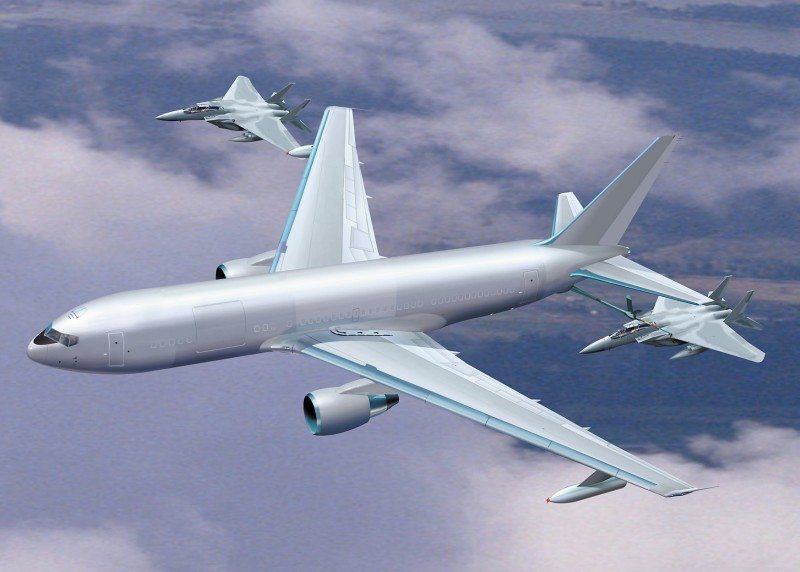U.S. Senator Maria Cantwell (D-WA) announced she is calling for a Defense Department Inspector General (IG) report to investigate the impact the Air Force leak of proprietary data has on the fairness and lawfulness of the KC-X tanker competition.
In a bipartisan letter sent today by Cantwell and six Senators to Department of Defense (DOD) Inspector General Gordon Heddell, the Senators said, “At a minimum, we know that the IFARA score was compromised. That is why it is critical that your investigation determine whether the data breach compromises the IFARA adjustment to price, and more broadly, whether the data breach creates an unfair competitive advantage for the bidder that looked at the other bidder’s proprietary data.”
Senators Patty Murray (D-WA), Jerry Moran (R-KS), Charles Schumer (D-NY), Lindsey Graham (R-SC), Richard Durbin (D-IL), and Pat Roberts (R-KS) signed onto the letter.
Today, the Senate Armed Services Committee held a hearing to look into the results of the investigation by the DOD and the Department of the Air Force into the release of proprietary data in the competition. Cantwell secured today’s hearing last month with Committee Chairman Carl Levin to determine if laws and fair competition regulations have been appropriately followed, and to review the propriety of the KC-X tanker competition procurement process in light of the Air Force’s data leak.
In a letter sent to Chairman Levin last week, Cantwell outlined several ‘gaps in knowledge’ she had hoped would be addressed at today’s hearing, including a full examination of the Air Force’s forensic analysis results to determine the facts surrounding the data leak and the fairness of the bidding process going forward. However, today’s hearing did not come close to making this determination. The two witnesses present could not even tell the Committee how the leaked IFARA score may impact the overall Air Force competition.
“Today’s hearing did not get at the core of the problem,” Senator Cantwell said. “The tanker competition is a price competition, and EADS saw Boeing’s proprietary data. What happened here is that EADS looked at Boeing’s IFARA score, which is used by the Air Force to adjust a bidder’s initially proposed price. EADS now has an unfair competitive advantage to adjust its bid to undercut Boeing. The Air Force’s so-called remedy to level the playing field took 21 days to implement. I am calling on the Defense Department Inspector General to do a full review of what exactly happened in and around the data leak, and how it has influenced the competition. With the Air Force expected to announce the tanker competition winner as early as February, I urge the IG to move forward expeditiously in conducting this review. America’s taxpayers deserve to have this $35 billion decision done right.”
Last November, during its evaluation process for the aerial refueling tanker contract, the U.S. Air Force mistakenly sent Boeing’s proprietary data to the European Aeronautic Defence & Space (EADS) Company, the parent company of Airbus, and EADS’ proprietary data to Boeing. This data contained proprietary information about both planes submitted for the tanker replacement, the Airbus A330 and the Boeing 767.
The data that was sent revealed each competitor’s Integrated Fleet Aerial Refueling Assessment (IFARA) score at the stage in the bidding process when the Air Force allows bidders to adjust their proposed price based on anticipated mission scenarios, fuel burn, and new military construction costs. IFARA is a computer model that determines one of the three measures the Air Force is using to adjust the bid price for each plane. View one-page document explaining the Evaluation Factors for the Award used by the Air Force.
Both companies notified the Air Force of its mistake. Initially, the Air Force reported that neither company looked at the other’s data. Subsequently, however, through the use of computer forensics, the Air Force confirmed that EADS looked at Boeing’s data related to IFARA, while Boeing did not look at EADS’ data. The Air Force decided that the only fair way to proceed was to openly invite both companies to view the IFARA data on their competitor and themselves.
For years, Cantwell has pushed for a fair and transparent Air Force tanker competition. She has repeatedly said that the European government subsidies to Airbus ruled illegal by the World Trade Organization (WTO) last June create an unfair advantage in the tanker competition and called for an end to them. Yesterday, she introduced legislation with Senator Jerry Moran (R-KS) that would require the Pentagon to consider in the tanker competition the unfair advantage provided by illegal subsidies. And she sent a letter yesterday to President Obama with Senator Murray calling on the President to make sure the Pentagon heeds his call to support American workers and businesses, as outlined in his State of the Union address Tuesday.
During the last Air Force tanker competition that was awarded February 29, 2008 to Northrop/EADS but later cancelled, Cantwell consistently fought for a fair and transparent process. She worked with her Congressional colleagues to examine the soundness of the Air Force’s procurement process. Cantwell urged Chairman Levin in July 2008 to hold a hearing on the Air Force’s contract decision to determine whether there were wider problems with defense procurement policies and practices. The Air Force ultimately decided to hold the new competition.










